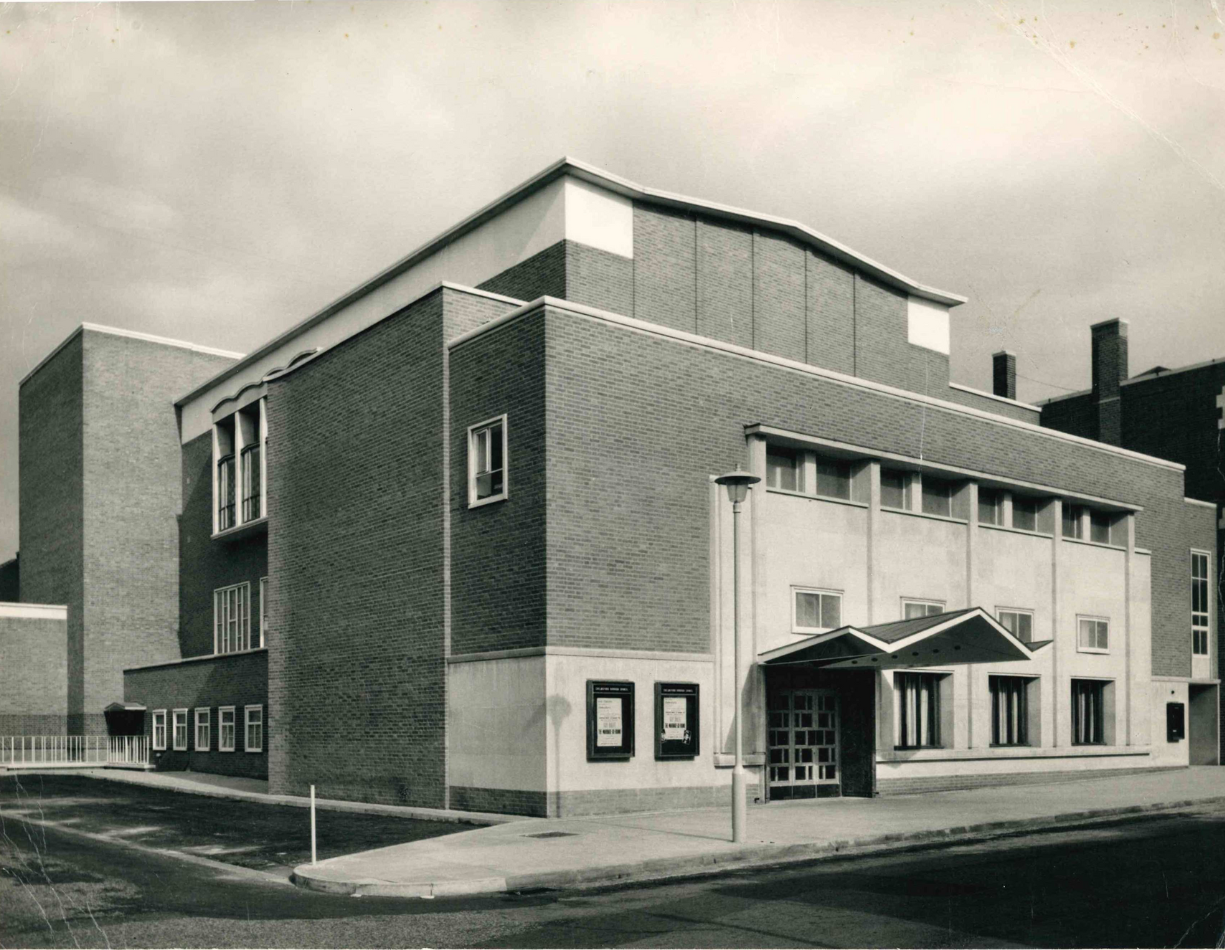Chelmsford Theatre began life as the Assembly Hall on 25 May 1962 as a multipurpose venue catering for dances, talks and meetings. The venue at first was not an ideal match for theatre performances. The original hall had a flat-floored auditorium with stackable seating and a stage built for an orchestra, but this did not deter a group of theatre enthusiasts seeing the potential of performing plays in the new venue.
Formed only a few years prior, to campaign for a permanent venue for theatre in Chelmsford, the Chelmsford Theatre Association would kick start a short season of plays just three months after the building's inaugural event. Beginning with Leslie Stevens’ 1958 play The Marriage-Go-Round, the season would open on 3 September 1962, becoming the catalyst that would mark the theatre’s destiny. In the gala souvenir programme producer Charles Vance writes ‘To-night marks a great step forward in the cultural life of Chelmsford, and indeed Essex’.

The success of that first season and that of the following seasons led to the adoption of the name Civic Theatre and secured more investment in the structure, culminating in the following years with the auditorium being developed into a proper theatre.
Throughout the following decades the Civic Theatre would be home to productions of plays by Agatha Christie, Tennessee Williams and Noel Coward among many others, and West End musicals like Five Guys Named Moe and The Rocky Horror Show. The much-loved classic pantomime has also been a constant throughout the years. The earliest record we have of a Christmas pantomime in the Civic Theatre is the 1967 production of Aladdin. Our stage has hosted many queens, kings, villains and pantomime dames since. Most notably our 2017 production of Snow White and 2018’s Cinderella both included RuPaul Dragrace UK royalty Kitty Scott-Claus.
Though Chelmsford City Council were involved from the beginning in the development and upkeep of the theatre it wasn’t until 1977 that the council assumed full operating and programming responsibility. And one of the most significant milestones to follow that move in the history of Chelmsford Theatre was the opening of the Cramphorn Studio in 1982. Adjacent and connected to the Civic Theatre, the Cramphorn Studio was built using a fund left by Alderman Cramphorn who bequested a significant amount of his estate for the ‘betterment’ of Essex. This more intimate and flexible auditorium gave more opportunities for local and community groups to perform, host weekly lunchtime concerts, and later allowed for the programme to become more diverse with live screenings under the name of Chelmsford Picture House.
Though theatre is still an important part of the programme, the events that take place here have diversified dramatically in the last two decades, matching audiences’ tastes. One of the most significant newcomers to our stage are comedians. Al Murray, Jenny Éclair, Tom Allen, Russel Kane, Katherine Ryan, Julian Clary and Michael McIntyre, to mention only a few, have all stood in front of sold out audiences at Chelmsford Theatre. Plus, music shows of all genres and celebrations of past legends have become hugely popular nights out for many over the last couple of decades.
In the summer of 2022 the building closed for only the second time in its history in order to give the then tired front of house spaces a makeover. Reopening on the 14 of January 2023, Chelmsford Theatre again took its place in the cultural heart of the city, revitalised and ready to welcome audiences for many generations to come.
Alderman Cramphorn and his link to Chelmsford Theatre
Born in Chelmsford in 1845 and long since deceased before any plans were made to have a theatre on Fairfield Road, you might wonder what Alderman Thomas John Deeks Cramphorn’s connection would be to Chelmsford Theatre.
Alderman Cramphorn

